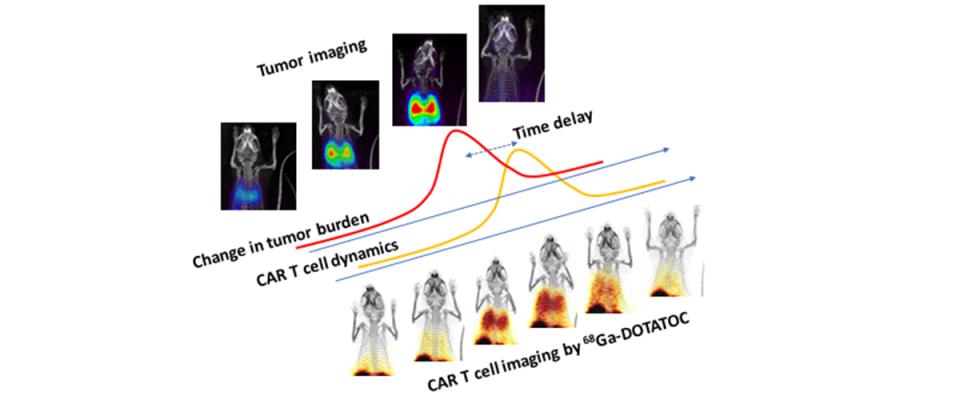The lab is developing chimeric antigen receptor (CAR) T cells against new tumor antigens; novel CAR constructs for simultaneous therapy and imaging; and various ways to augment the potency of CAR T therapy against solid cancers. The lab’s recent successes include: demonstration of somatostatin receptor-2 (SSTR2) for imaging T cell distribution and activity in vivo (using positron emission tomography/computed tomography (PET/CT)), and developing micromolar affinity CAR T cells to be selective to antigens over-expressed in tumor/tumor stroma while sparing normal cells with basal expression of the same antigen. CAR T cells that the lab developed to treat aggressive, refractory thyroid cancer are being evaluated for safety and efficacy in a phase I clinical study (NCT04420754): Study of AIC100 in Relapsed/Refractory Thyroid Cancer.
Specific questions concerning CAR T research include:
- Tune affinity of CAR to be selective to tumors with overexpressed antigens while sparing normal cells.
- T cell activation-dependent secretion of cytokines to compensate for the loss of activity due to affinity-tuning without altering CAR selectivity.
- CAR T cell mediated pre-targeting and delivery of radionuclide therapeutics.


